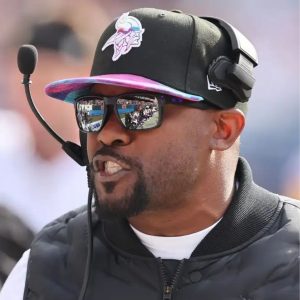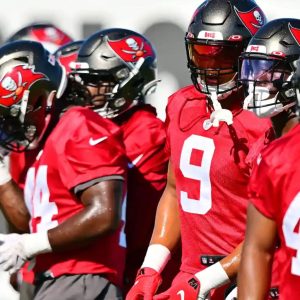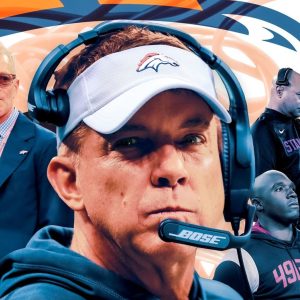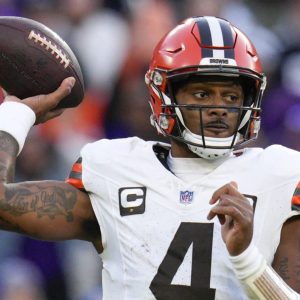The Denver Broncos find themselves at the epicenter of a less than ideal offseason that’s as much about broken connections on the field as it is about frayed relationships off it. The recent trade of WR Jerry Jeudy has stirred a pot of discontent, and former Denver Pro Bowler Chris Harris Jr. didn’t hesitate to point fingers directly at ex-quarterback Russell Wilson for the unsettling shift in team dynamics. Taking to X, Harris’s critique was both blunt and telling: “Yall people really think Jeudy Trash lol it’s hard to play when your QB misses you every week.”

This criticism comes against the backdrop of a seismic decision by the Broncos to part ways with Russell Wilson, a move that not only sent shockwaves through the league but also resulted in the biggest dead money hit in NFL history. This decision marks a stunning fall from grace for Wilson, who was acquired by Denver in a blockbuster trade with the Seattle Seahawks with the expectation that he would revive the team’s fortunes.
Jerry Jeudy, selected 15th overall by the Broncos in the 2020 NFL Draft, came into the league with high expectations. A standout at Alabama, his college career was marked by precise route-running, explosive playmaking ability, and a knack for getting open. However, his time in Denver has been a rollercoaster, with flashes of brilliance often overshadowed by inconsistency in production. While it’s easy to lay blame at the feet of the receiving corps, Harris’s comments illuminate a broader issue—a disconnect between Jeudy and Wilson, emblematic of the quarterback’s troubled tenure with the team.
Russell Wilson’s arrival in Denver was heralded as the dawn of a new era for the Broncos, a franchise desperate to return to its former glory. However, the 2022 season laid bare the complexities of integrating a star quarterback into an existing system and highlighted the challenges of building team chemistry. Wilson’s struggles on the field were palpable, and his inability to consistently connect with Jeudy became a microcosm of the Broncos’ offensive woes.
The decision to trade Jeudy and release Wilson signals a dramatic shift in the Broncos’ strategy and a stark admission that the expected synergy between quarterback and receiver failed to materialize. Harris’s tweet, though succinct, speaks volumes about the frustration within the ranks, suggesting that Jeudy’s potential was stifled by the quarterback’s performance. This perspective sheds light on the complexities of football, where talent alone is not enough to guarantee success. It underscores the importance of synergy, timing, and mutual understanding—elements that were conspicuously absent in the Wilson-Jeudy dynamic.
The fallout from these moves is profound, leaving the Broncos in a period of transition and uncertainty. The release of Wilson, coupled with the trade of Jeudy, not only has financial ramifications but also impacts the morale and composition of the team. Denver is now tasked with rebuilding its offense, a challenge that will require careful consideration of player dynamics and team chemistry.
For Russell Wilson, his departure from Denver marks a significant setback in a career that has otherwise been marked by accolades and achievements. The situation serves as a reminder of the precarious nature of the NFL, where success is fleeting and the margin for error is slim. Wilson’s journey will be closely watched as he seeks to rebound from this chapter and redefine his legacy.
Meanwhile, Jerry Jeudy faces the prospect of a fresh start, an opportunity to prove his detractors wrong and showcase the talent that made him a first-round pick. His trade from the Broncos is not merely a change of scenery but a chance to reconnect with the essence of his game—precision, speed, and the relentless pursuit of excellence.
As the Broncos navigate this tumultuous period, the lessons from the Wilson-Jeudy saga will undoubtedly shape the franchise’s approach to team building and player relations. The importance of compatibility, both on and off the field, has never been more evident, nor more critical to the success of an NFL team. In a league where the difference between victory and defeat is often measured in inches and seconds, the Broncos’ future hinges on their ability to forge connections that transcend the physical dimensions of the game.





